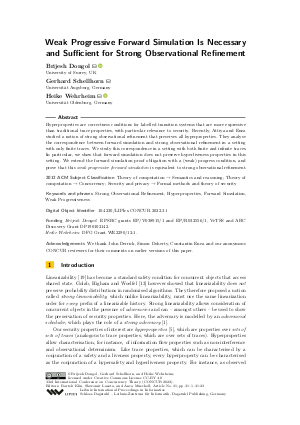LIPIcs.CONCUR.2022.31.pdf
- Filesize: 0.96 MB
- 23 pages

 Creative Commons Attribution 4.0 International license
Creative Commons Attribution 4.0 International license








Feedback for Dagstuhl Publishing